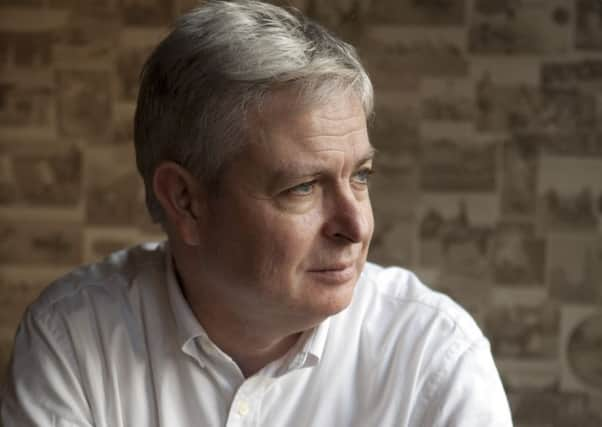Book review: Number 11 by Jonathan Coe


On the other hand, Coe is usually described as a satirist, and this new novel, to some extent a follow-up to What A Carve Up!, written 20 years ago, is billed as a satire. The earlier book had a go at Thatcherism and the legacy of Margaret Thatcher’s Britain. The new one is directed at Britain, or rather perhaps England, in the grip of neo-liberal economic theory. (The title directs you to 11 Downing Street and George Osborne, though it has other meanings, among them the fact that this is Coe’s eleventh novel. There is also a member of the super-rich who is perhaps undermining London by indulging in the fashionable practice of installing basements, in this case 11 storeys deep.)
The novel is in five sections with different narrators or points of view. One of them, Rachel, is obsessed with the 2003 death of Dr David Kelly, the scientist and weapons inspector, found dead in a wood after leaking doubts about the Government dossier purporting to show that Saddam Hussein had weapons of mass destruction, the claim justifying the Iraq war. Rachel, though a child at the time, is obsessed by the death, never forgetting her grandparents’ belief that this was no ordinary death (or suicide), but one that “would send ripples of unease and mistrust throughout the country… Britain would be a different place from now on, unquiet, haunted”.
Advertisement
Hide AdAdvertisement
Hide AdI think we are expected to agree with this; if so, it’s a moment when Coe’s comic mask slips, for the notion that Dr Kelly’s death, however mysterious and sad, has haunted the popular imagination and changed the country, is surely itself a matter for comedy.
Happily, Coe’s lively sense of the absurd re-asserts itself. Less happily, many of his targets are so obvious as to be already hackneyed: internet trolling, the cult of talent-free celebrity, the distorted reality of reality TV, the synthetic fury of tabloid journalism. He does it well, but if you smile or laugh, it’s not because you are taken by sudden delighted surprise; it’s more like a response to the comfort of an old, familiar saloon-bar rant. Put a penny in the slot and you win a bar of synthetic chocolate.
There are better inventions, more worthy of his lively talent. There is the University Institute for Quality Valuation, established “to quantify things that have traditionally been thought of as unquantifiable. Feelings, in other words.”
This is good, partly because, if there is no such institute engaged on such an absurd task, yet, one immediately suspects that it may be just around the corner. After all, once you quantify anything, even feelings, you can put a price on it, and everything, we know, has its price these days.
Advertisement
Hide AdAdvertisement
Hide AdSo, with joyful absurdity, we find that when a number of skeletons dating from the 14th century are unearthed in the construction of the London Crossrail project, an academic calculates that this “probably adds £1.2m to the value of London as a whole”.
There are lots of fine things in the novel. I particularly liked the creation of a Prize for the best Prize, declared by its steering committee to be “the ne plus ultra of cultural accolades”.
This is a very happy invention, putting, for example, the BBC’s Sports Personality of the Year in competition with the Nobel Prizes and the Literary Review’s annual Bad Sex Award. Clearly in this time of the proliferation of prizes, one needs such a thing. No doubt the idea will be taken up, but here, certainly, Jonathan Coe is ahead of the game. Meanwhile, one should be grateful for any novel which, like this one, is devoted to the great cause of cheering us all up, no matter how indignant the author may often be.
• Viking, £16.99